Introduction:
Transformation of Healthcare sector is happening with help of AI. With advancement and improvement in Artificial intelligence models it is making healthcare sector more efficient and effective. What was unthinkable in the healthcare sector a few years back now seems possible with the aid of artificial intelligence. AI can help healthcare professionals by using machine learning models to analyse large amounts of generated data of patients in the shortest possible time and suggest a beneficial health solution. This article will explore the healthcare sector’s fields where AI revolutionizes the traditional healthcare system.
AI in Healthcare Sector where its applications are used
- Medication advice using Machine Learning
- Natural Language Processing (NLP) based Medication
- Disease diagnosis and early treatment
- AI in reducing the administrative task in health-care
- Transformation in Healthcare Industry by Aiding in Clinical Research for Drug Discovery
- Reducing Hospital Care Time
Medication advice using Machine Learning
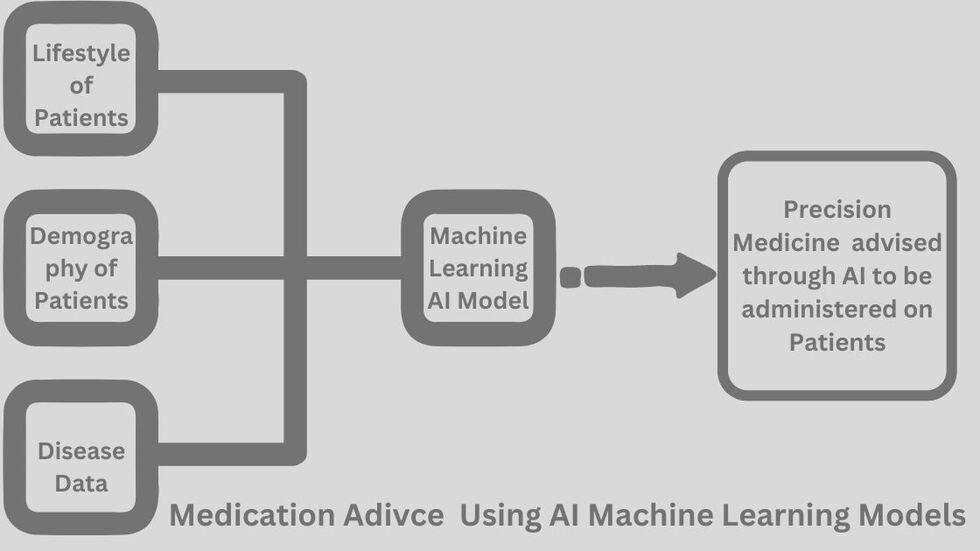
Transformation of healthcare is happening through machine learning models. To understand it more clearly, let’s look at Machine Learning models. Its most common form of AI is used in the healthcare sector. ML models are based on a large set of biological data, which include information related to disease, factors causing illness, and demographic information of a particular region. Machine learning models are trained on input data, and later it is tested on the live data of the patient, it gives advice and suggestion related to medication to be given to the patient.
One of the most widely used forms of machine learning is precision medicine. Thus, it helps the clinician to administer more careful treatment or preventive approaches for individual patients.
These models have a limitation, i.e., their accuracy depends on the input datasets on which the model is trained. Thus, ML models require a continuous process of feeding improved input datasets which can make models to provide more accurate results.
Natural Language Processing (NLP) based Medication
Another form of AI used in transformation of healthcare sector is NLP-based model applications. NLP models are combinations of linguistics, computer science, and artificial intelligence models to understand unstructured information. These models analyze unstructured data coming from patients’ verbal and written feedback. Doctors’ hand and digital records of observations made on patients. And results arising from pathological and lab tests of patients.
All this unstructured information is fed into NLP models. Then these models evaluate them in sync and try to give vital information which is almost impossible for humans to find.
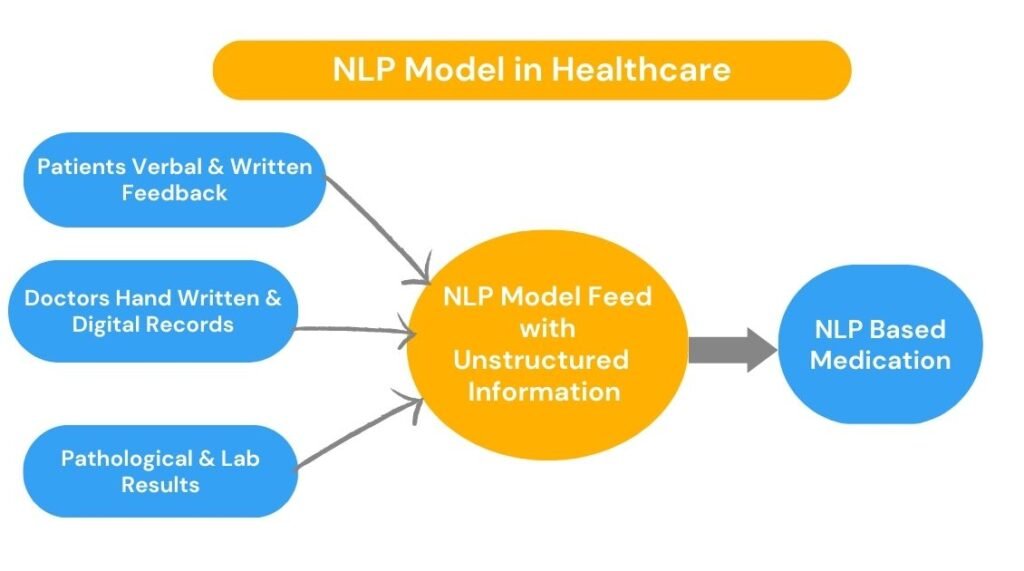
Disease Diagnosis and Early Treatment
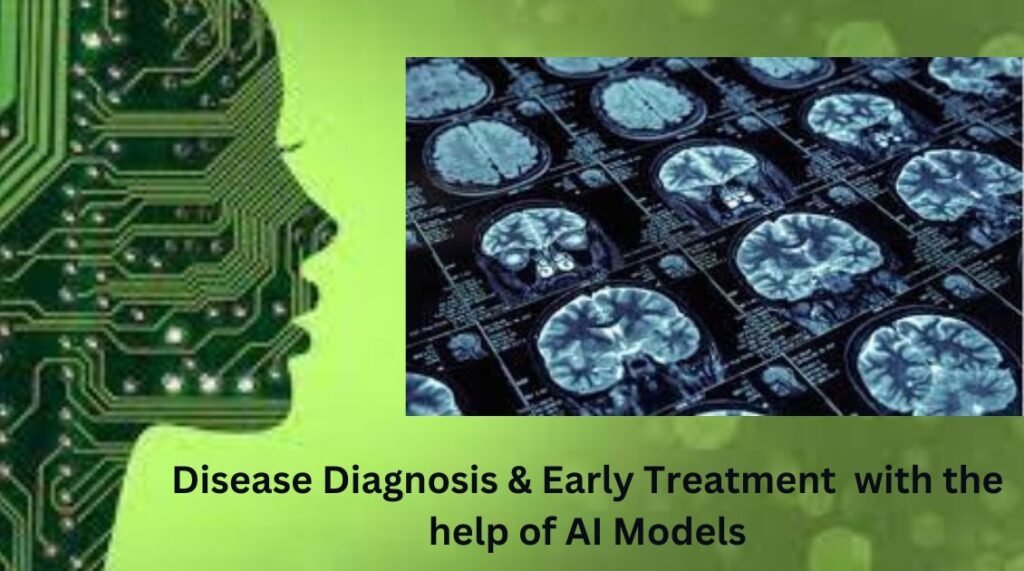
Some AI applications are in early disease diagnosis. It is mainly used in early diagnosis, which is conducted by analyzing the radio images produced by X-rays and CT scans.. Machine learning models analyze these images and suggest a diagnosis for cancer or heart-related ailments.
Still, AI applications have yet to evolve due to the continuous process of feeding large input data so that it can train on it and give accurate results. But with advancements in data collection systems at healthcare facilities. Machine learning models are advancing; they may help us accurately detect cancer cell formation or heart ailments in the future.
AI in reducing the administrative task in Healthcare
Another use of AI in transformation of healthcare sector is administrative task. A common healthcare task repeated every time is called a regulated process. AI applications are finding their use as Regulatory Process Automation (RPA). These models can automate administrative tasks such as insurance claims processing, clinical documentation, revenue cycle management, and medical record management.
A few healthcare organizations have also started pilot programs of AI chat-bots for patient interaction related to tele-health or mental health-related discussions. Though these chat-bots still need to provide credible exchanges, issues related to data confidentiality hamper their wide adoption.
Also, AI systems are employed to analyze the risk associated with patients by health insurance companies to compute health premiums and reduce their claims arising in the future.
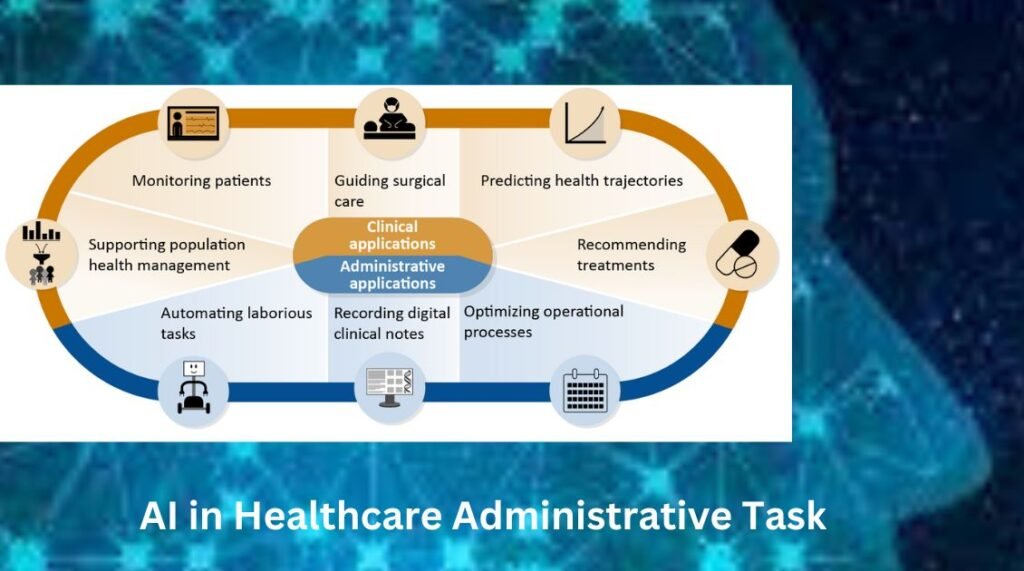
Transformation in Healthcare Industry by Aiding in Clinical Research for Drug Discovery
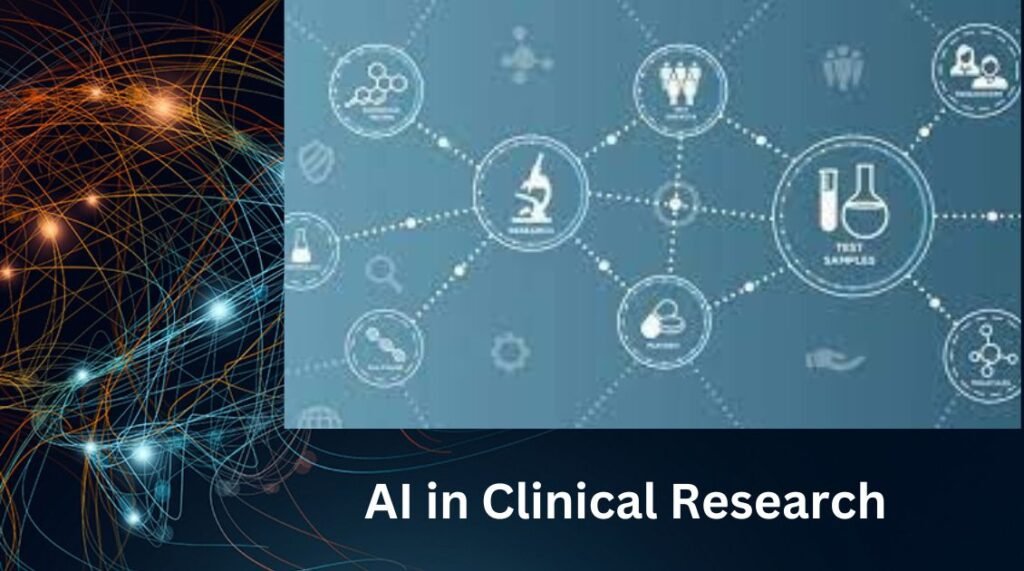
Ai is helping pharmaceutical firms research new medicine and medical treatment applications. Any drug discovery involves studying a large amount of data from the effects of various chemicals administered on the subject (animals / humans) for trials.
This process often spans months to years before health authorities develop and approve an active pharmaceutical ingredient. The drug discovery process is time absorbing and very expensive for firms to carry out. More than half of the molecules selected for drug development during research trials fail to pass all requirements.
Here AI plays a vital role in studying various effects of chemicals or combinations of different chemical compounds at a faster rate. AI tools such as machine learning models (ML), Convolution Neural Networks (CNN), and Image Processing can study chemical molecules’ effects faster, thus helping reduce the cost of research and time. Still, AI models need to be more mature to make a breakthrough in drug discovery, but they can assist in the process.
Reducing Hospital Care Time
Transformation of healthcare also happening in time spend at hospital. AI assists healthcare workers in understanding patients’ medical records more easily. AI models extract vital information from patients’ electronic medical records and provide services to healthcare workers. This accurate, concise information helps in the correct medication to be given to patients, thus reducing the time patients in the hospital. Also, AI helps healthcare workers to monitor patients remotely, measuring their vital signs and symptoms early on. Therefore, it helps identify potential risks before they become severe and require hospitalization.
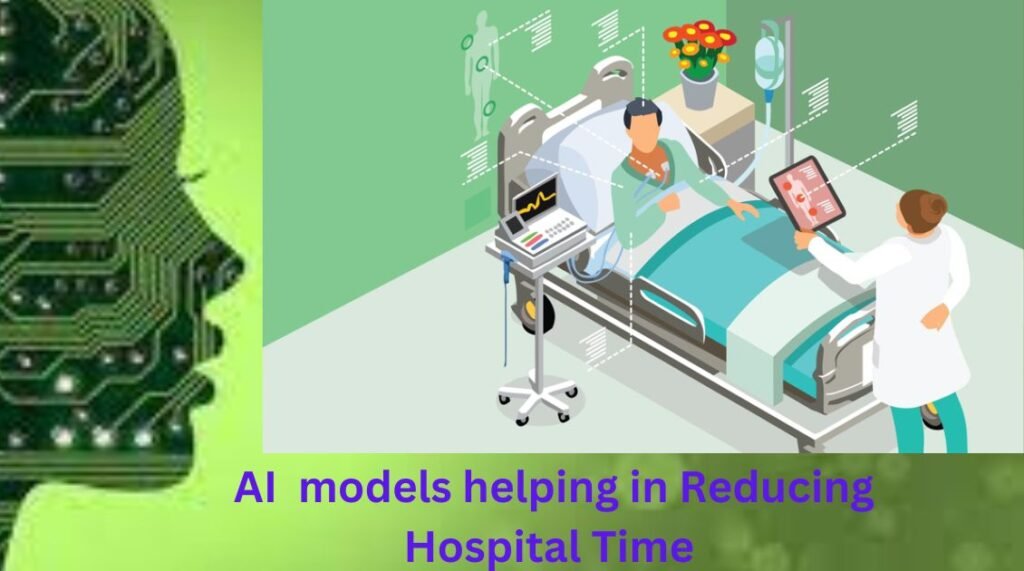
Conclusion
As we have seen, artificial intelligence (AI) and its application which is helping to revolutionize the healthcare sector. But it has limitations i.e AI model’s accuracy largely depends on the input data sets on which they are trained before being applied in actual applications. Thus, models require continuous feeding of new and improved input data sets. AI involves the cost of collecting data and also training healthcare professionals to use these AI models. AI is in the infancy stage of usage in the healthcare industry, which will improve with time. The advent of more accurate AI models and input sources for these models will help to transform the healthcare industry.
If you find it ineresting how is ai helping healthcare sector then do read about how AI is helping in Navigation Industry
Frequently Asked Questions………………::
How is AI being used in Healthcare?
AI models also called NLP models applications used in healthcare which can understand electronic records data and help healthcare professionals make more accurate decisions. These AI models assist in reducing the total time patients spend in the hospital.
What is the best application for AI in Healthcare?
The best Application for Ai in Healthcare are:
- Virtual Health Assistant
- Treatment of Rare Diseases through the aid of research carried out by AI models
- Early Diagnosis of Fatal Diseases like Cancer, Diabetics
- Automation of Redundant Health care tasks
- Management of Medical records in electronic format for easy access by Healthcare Professional
What is the benefit of AI in Healthcare?
AI models are helping the healthcare industry with early diagnosis, reducing patient time at the hospital, settling healthcare insurance claims, and helping research drugs for rare diseases. Through AI, healthcare benefits will be widespread among a larger population segment at lower costs.
Why is AI the future of the Healthcare Industry?
With AI helping, the healthcare industry will evolve and mature faster. The resultant benefit will be for Pharma Companies who are spending billions of dollars on the research of drugs helping them to reduce their costs.
The future of the Insurance industry involved in the healthcare insurance industry will be able to manage the risks associated with patients. By proper analysis of health risks related to its patients, insurance companies likely offer more accurate premiums for their insurance products. And with the help of AI, the healthcare industry will provide benefits such as reducing health-related problems, such as early diagnosis, appropriate treatment, discovery of effective drugs, reducing the risk associated with a fatal disease, and so on.

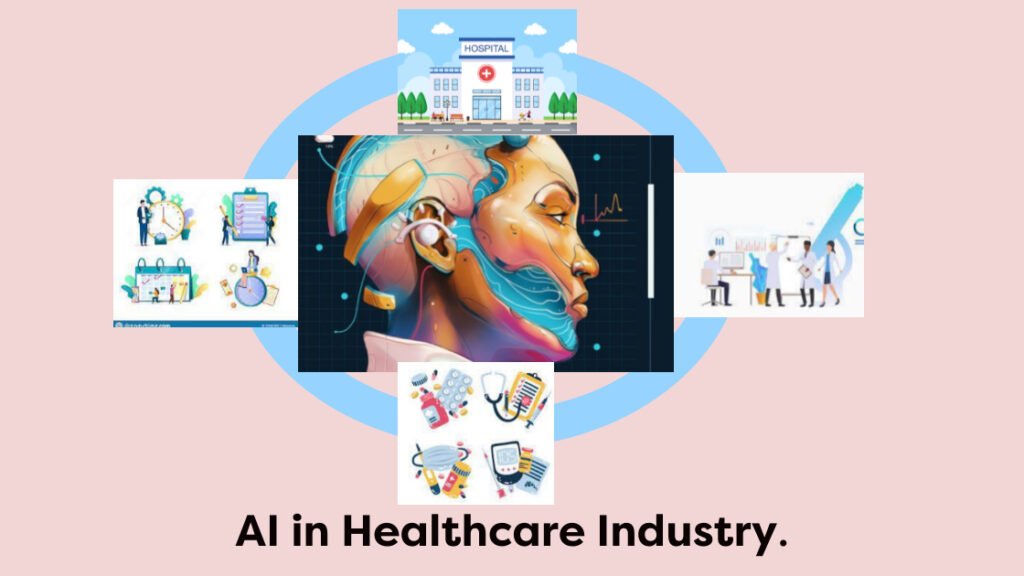
Pingback: Remote Patient Monitoring by AI - Techaninfo
Pingback: The Saga of Artificial Intelligence in Agriculture - Techaninfo
Everything is very open with a really clear description of the issues. It was definitely informative. Your site is useful. Thank you for sharing!
We hope you will find more interesting topics on our site for your interest! Happy Learning 1